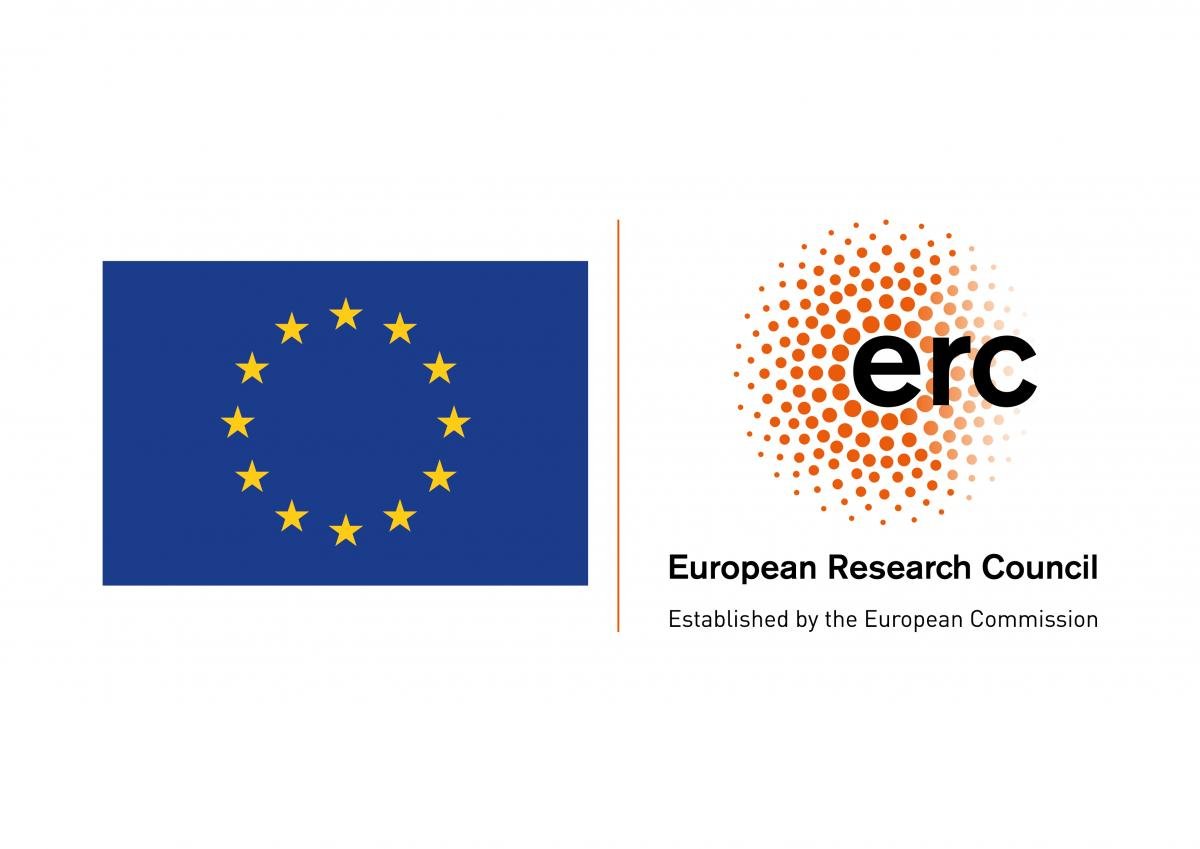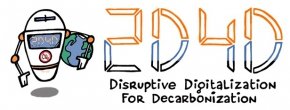Digitalization will fundamentally change all sectors of the European economy in the next decades. At the same time, the EU is committed to reaching net-zero carbon emissions by 2050. These two transformation will undoubtedly affect each other, but the extent to which they will be mutually supporting is currently unknown. Most importantly, there is a danger that the digital transformation will delay the progress towards a net-zero carbon economy. The EU-funded 2D4D project aims at ensuring that the digital transformation is not a barrier to decarbonisation, rather an enabler. The project will identify and measure the decarbonisation consequences of three disruptive digitalisation technologies in hard-to-decarbonise sectors: additive manufacturing in industry, mobility-as-a-service in transportation, and AI in buildings. The project will produce a distinctive data collection to examine the technical and socioeconomic potential of these technologies, enhance decarbonisation narratives and ensure that digital technology supports energy transition.
General aims
Funded by the European Research Council Executive Agency (ERCEA)

General objectives
The 2D4D project aims to advance the frontier of knowledge by linking the academic and policy debates around decarbonization and digitalization. The project will rely on complementary, mixed-method approaches to provide much-needed, sound, well-rounded answers to these questions to address three specific research gaps:
Research gap 1: What are the socio-economic impacts of digitalization in hard-to-decarbonize sectors of the economy and society?
Research gap 2: How should decarbonization narratives, scenarios and pathways be augmented to account for the disruptive impact of digital technologies on energy demand, economic growth and social development?
Research gap 3: How should decarbonization policies and portfolios be designed to account for disruptive digitalization, thus ensuring they are robust and represent “no-regret” options?
CMCC role:
CMCC is the second beneficiary of this project. The project is managed by the SEME Division, within the RFF-CMCC European Institute on Economics and the Environment. The specific role of CMCC within the project is focused on using information emerging from the analysis of data on the technical and socio-economic impacts of specific digitalization technologies to inform both the creation of sector specific models and their linking of such models to an Integrated Assessment Model. CMCC will also be involved in the analysis of portfolios of policies to capitalize on digitalization in order to successfully promote and achieve deeply decarbonized economies.
Activities:
2D4D will carry out the following activities:
- characterize the technical and socio-economic dynamics of three key digital technologies: additive manufacturing (AM) in industry, Mobility-as-a-Service (MaaS) in transportation and Artificial Intelligence (AI) in buildings;
- produce “AI-cognizant” decarbonization narratives and pathways by enhancing decarbonization narratives to specifically describe digitalization dynamics and by improving the sectoral-specific representation of digitalization dynamics in Integrated Assessment Models (IAMs), which are one of the main tools to generate decarbonization pathways.
- identify no-regret, robust policy portfolios to ensure decarbonization through digitalization as well as the achievement of other important co-benefits
Expected results
2D4D will:
- improve the understanding of how technical aspects of digital technologies affect future energy demand both in business-as-usual scenarios and in the presence of climate policies;
- pioneer the combination of a bottom-up understanding of sectoral-specific digitalization dynamics with macro-economic modelling to ensure a detailed yet integrated understanding of the socio-economic implications of the digital revolution;
- combine qualitative and quantitative methods (e.g. data analysis, modelling, surveys and expert elicitations) to produce the largest collection of parameters and variables describing future decarbonization trends in industry, transportation and buildings;
- enhance decarbonization narratives (i.e. Shared-Socioeconomic Pathways) and Integrated Assessment Models (IAMs) by including digitalization dynamics, and generates “AI-cognizant” decarbonization pathways;
- identify no-regret policy portfolios jointly supporting the digital and energy transformations.
Partner:
University of Brescia (UNIBS)
CMCC Foundation


